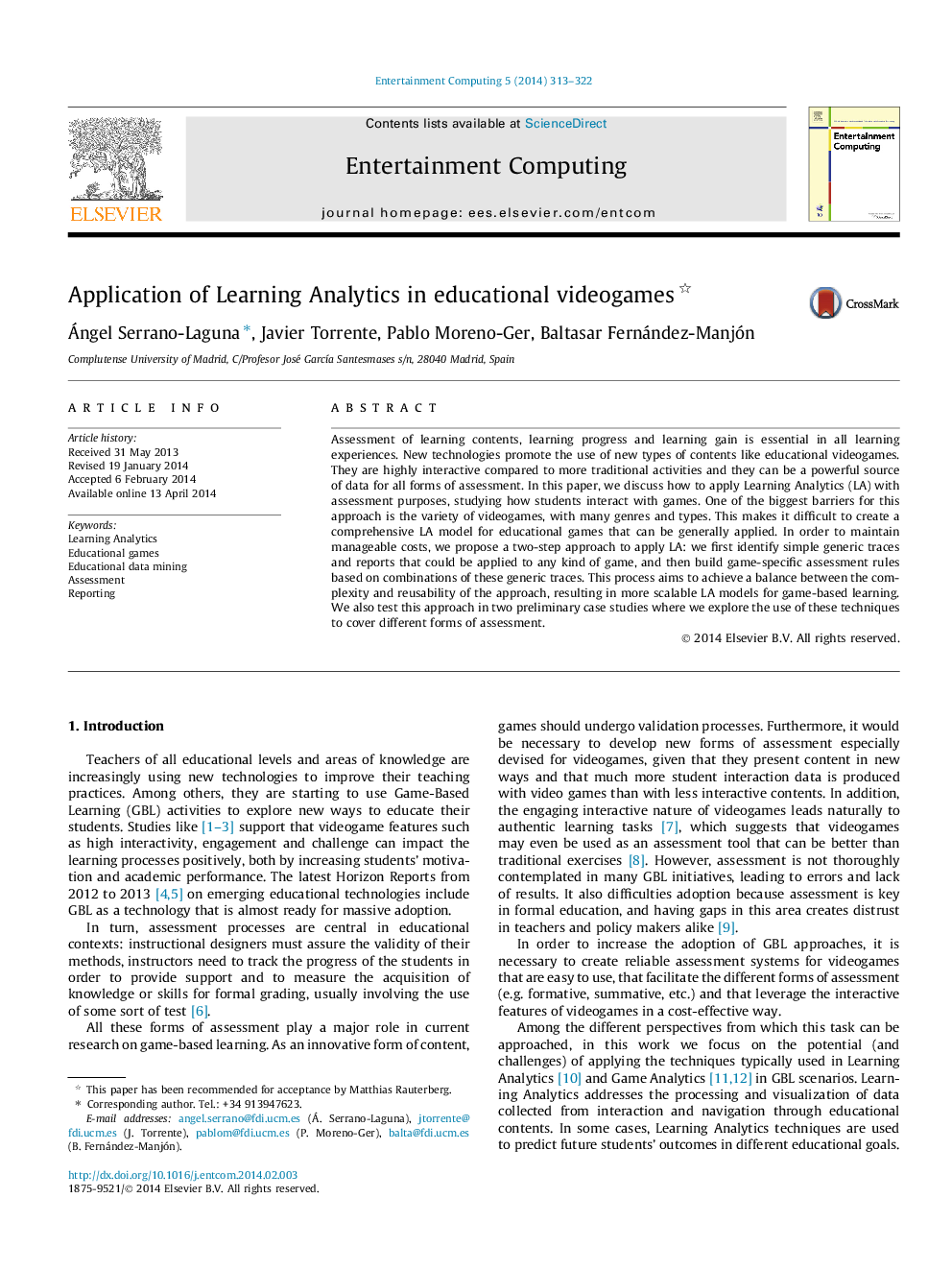| Article ID | Journal | Published Year | Pages | File Type |
|---|---|---|---|---|
| 381829 | Entertainment Computing | 2014 | 10 Pages |
•We define a set of universal traces for educational videogames and discuss their potential for assessment purposes.•These traces can also be used to improve game usability.•We present how these traces have been applied in two case studies.
Assessment of learning contents, learning progress and learning gain is essential in all learning experiences. New technologies promote the use of new types of contents like educational videogames. They are highly interactive compared to more traditional activities and they can be a powerful source of data for all forms of assessment. In this paper, we discuss how to apply Learning Analytics (LA) with assessment purposes, studying how students interact with games. One of the biggest barriers for this approach is the variety of videogames, with many genres and types. This makes it difficult to create a comprehensive LA model for educational games that can be generally applied. In order to maintain manageable costs, we propose a two-step approach to apply LA: we first identify simple generic traces and reports that could be applied to any kind of game, and then build game-specific assessment rules based on combinations of these generic traces. This process aims to achieve a balance between the complexity and reusability of the approach, resulting in more scalable LA models for game-based learning. We also test this approach in two preliminary case studies where we explore the use of these techniques to cover different forms of assessment.
